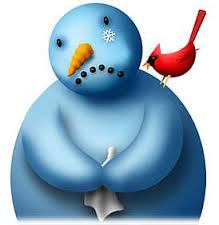 The month of January is named after the ancient Roman god of Janus. Usually depicted as having two faces, looking to the future and to the past, he represents gateways, passages and endings. However, given the festive season isn’t always a time of good will, for some his mythical role as presiding over the beginning and ending of conflict may feel more relevant. The figurehead of Janus also reminds me of the two faces of the New Year. January is a time of transitions and laying down of new patterns – in that sense, we have the face of optimism. On the other-hand (or other-cheek), the looking back can be clouded by regret or remorse. Our year may be clouded with disappointment; a feeling we failed to meet expectations. It can also give a sense of old patterns that we’ve not been able to break, and can have left us feeling low. The “January blues” are not an uncommon experience for many people. The long build up to Christmas, whether stressful or exciting, is now over. The month of December may have physical, financial and emotional costs.
The month of January is named after the ancient Roman god of Janus. Usually depicted as having two faces, looking to the future and to the past, he represents gateways, passages and endings. However, given the festive season isn’t always a time of good will, for some his mythical role as presiding over the beginning and ending of conflict may feel more relevant. The figurehead of Janus also reminds me of the two faces of the New Year. January is a time of transitions and laying down of new patterns – in that sense, we have the face of optimism. On the other-hand (or other-cheek), the looking back can be clouded by regret or remorse. Our year may be clouded with disappointment; a feeling we failed to meet expectations. It can also give a sense of old patterns that we’ve not been able to break, and can have left us feeling low. The “January blues” are not an uncommon experience for many people. The long build up to Christmas, whether stressful or exciting, is now over. The month of December may have physical, financial and emotional costs.
- The season of excess, where quantity can trump quality, often leaves people low on vital nutrients. Aid to the mix the shorter days and inclement weather, activity patterns can take the brunt – the result? According to the British Dietetic Association, a weight gain of around 5lb by the time we reach the beginning of the New Year, and that may take 3 months to erase. And many Brits only succeed in losing pounds from their pocket not their waistline. A staggering £37million is spent on gym memberships each year; a recent online survey suggests 77% are unused after the third week of January.
- And it’s a surprise that there is money to waste after the huge Christmas spend. Although reportedly better in previous years, the data for 2014 suggest that many people are still crippled by debt in January. Figures from the Bank of England show that unsecured consumer loans, excluding student loans post-Christmas bluescurrently stand at £167.9billion!
- Christmas and its elevated expectations can strain even the strongest relationships. Time off work allows more time with family, friends and partners. Ironically, with more time together, many relationships break down permanently. Couples, putting relationship problems to the side until the New Year in a hope of not causing pain to children during the holiday seasons, has lead to January being labelled as “Divorce month” by the legal profession. According to the Office for National Statistics, divorces double in January as couples enter the New Year determined to seek separate and new lives.
A rather depressing picture? Psychologists have declared January 24th as the most depressing day of the year.
Emotional well-being is the ultimate loser. Depression and grief spike at this time of year, and not just in those 7% of the British population that suffer from Seasonal Affective Disorder caused by the shorter winter days. As I talked about in my last blogpost Rather than the “Hallmark card” image of the Christmas family gathering, for many the period will have meant experiencing overwhelming anxiety, sadness, depression or even suicidal thoughts.
Our Roman friend Janus can remind us that entering the New Year offers a way forward – whether addressing a case of the January blues or in dealing with more substantial mental health issues. In looking back, there comes a danger of being overwhelmed by what has happened and how we feel. Yet these issues (some revealing patterns created by childhood experiences) can be ‘composted’ and end up like fertiliser for new growth.
The wound is the place where the Light enters you – Rumi
In other words, our wounds or our points of resistance hold many answers. If we can see them, rest with them, they hold much knowledge and wisdom. They can help us look forward and help us start anew.
What follows are a few suggestions to help you get up and running in the New Year: whether you simply need an injection of vigour, or whether you have deeper-seated issues.
- Get outside. Whether a walk or taking a book to a bench in a suntrap, just feeling some UV rays on your face will improve mood.
- Get active. Up the heart rate with some exercise, and the increase in metabolic rate will help you burn unwanted weight gain as well as boost circulating hormones that also feed mood patterns.
- Get connected. Don’t simply rely on social media for networking with friends. It can be tempting to withdraw and become a recluse in January, yet social contact can be a powerful aid in combating low mood. Even if your budget has been overstretched, rather than thinking you cannot afford to go out, reach out to others – why not invite friends round for a cup of tea or for a walk?
- Working things through. Ensure you have time to intentionally process emotions, particularly any remaining issues from the Christmas period. It can help to have someone working alongside you in this process; someone who is trained to listen and can offer some objectivity and encouragement.
Starting afresh in January can be very inspiring, but the added pressures of ‘new year, new you’ can have us falling at the first hurdle. Don’t become a slave to New Year’s resolutions. It amazes me how people attempt to move from a period of laxity during the holidays to the strict discipline of resolutions. Break the process down into steps:
- Establish a routine. Get back your normal routine first and THEN look ahead. It can be daunting returning to work after the break. Getting a rhythm back can be essential in providing you with a stabilising influence. Resuming normal eating and sleeping patterns are essential for well-being.
- Evaluate your needs. Only by invest in some ‘me time’ will you get some clarity on what you want in the coming year. What can you do that nourishes you and gives you some space to reflect? It may be going for walks, writing in a journal, taking a long bath or developing a mindfulness meditation practice.
- Set intentions. If you could fast-forward 12 months, what would you like your life to be like? How would you want to feel? This may contain things you want to achieve: Goals are a great way to grow and stretch ourselves, but try not to slip in to a critical edge where you think you need to be a better person than you are now. Working with a coach can really optimise the process and help you clarify risks of confusing outcomes with worth as a person.
I recognise how hard the festive season can be – in my own experience, I have found it to act like a magnifying glass, bringing feelings to the surface; feelings that need processing; problems in relationships that need addressing. For this reason, during the month of January I am offering counselling at a special discount – to help people stabilise in the New Year…at a reduced rate to match New Year budgets.
If you book 6 sessions of counselling in January, you will receive these at £25 per 50 minute session. Thereafter, the rate will go back to my normal fee (of £40 per session).
Contact me now to claim this offer.
